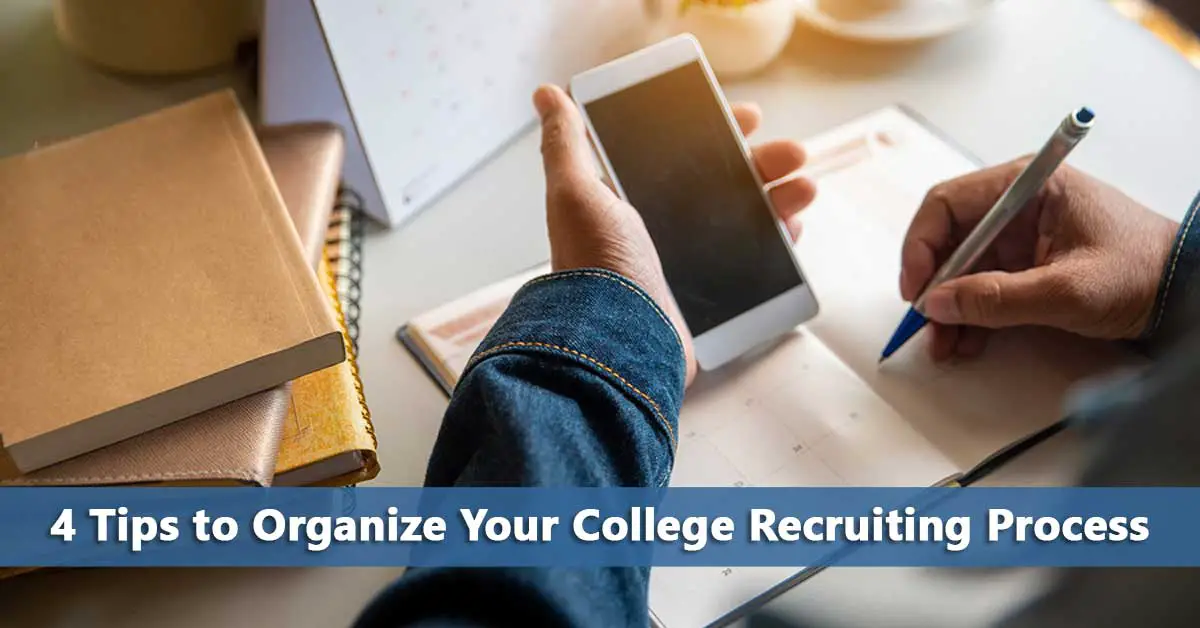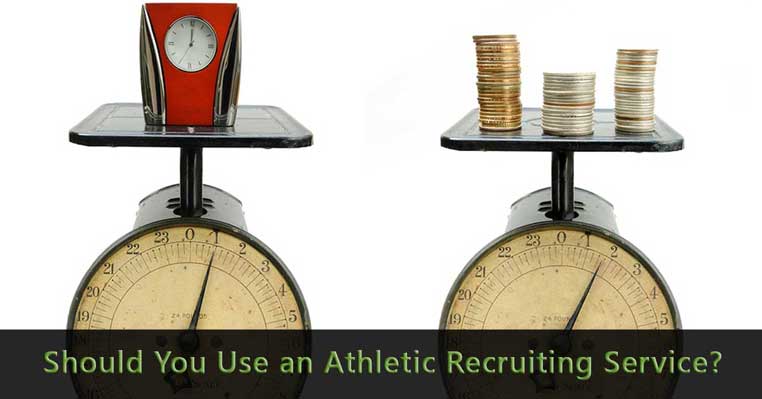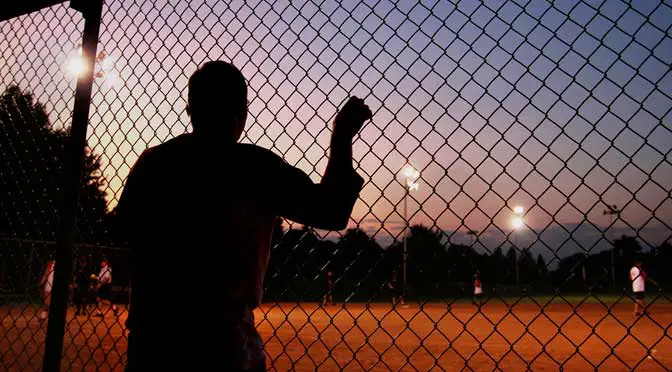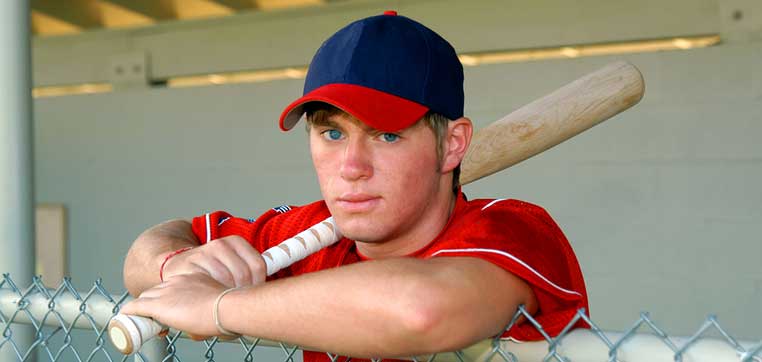 I’m always amazed at how little players and their families know about athletic scholarships. Given that most of them have been justifying playing their sport for the chance at a college scholarship since middle school, you would think they would be better informed. Depending on the sport and division, scholarships can be very limited. It’s kind of like someone planning a trip to Europe and not realizing they need a passport for traveling. Yes, some of the stuff people are missing is pretty basic.
I’m always amazed at how little players and their families know about athletic scholarships. Given that most of them have been justifying playing their sport for the chance at a college scholarship since middle school, you would think they would be better informed. Depending on the sport and division, scholarships can be very limited. It’s kind of like someone planning a trip to Europe and not realizing they need a passport for traveling. Yes, some of the stuff people are missing is pretty basic.
Baseball
4 Simple Tips to Organize the Recruiting Process
 College athletic recruiting is a process of narrowing down school choices while collecting increasingly detailed information about those choices and not losing track of where you are during the process. Piece of cake-right! The problem is that athletes won’t always be at the same stage in the recruiting process for every college they’re considering. One school may be at the “received a mass email flyer for a summer camp” stage while another is at the “scheduling an official visit” stage. So how do you keep track of everything? Here are four ways to organize the recruiting process.
College athletic recruiting is a process of narrowing down school choices while collecting increasingly detailed information about those choices and not losing track of where you are during the process. Piece of cake-right! The problem is that athletes won’t always be at the same stage in the recruiting process for every college they’re considering. One school may be at the “received a mass email flyer for a summer camp” stage while another is at the “scheduling an official visit” stage. So how do you keep track of everything? Here are four ways to organize the recruiting process.
Should You Use an Athletic Recruiting Service?
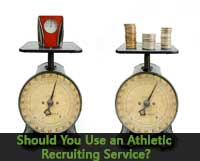 As students and parents start to wade into the college athletic recruiting process, they’ll soon see all kinds of advertisements, websites, and offers from athletic recruiting services. All promise to help you with getting an athletic scholarship because, they’ll tell you, they have access to people and information that you don’t. And as the wading starts to feel like drowning as parents begin to realize how much college costs and how many colleges are actually out there, paying for a recruiting service doesn’t seem like such a bad idea.
As students and parents start to wade into the college athletic recruiting process, they’ll soon see all kinds of advertisements, websites, and offers from athletic recruiting services. All promise to help you with getting an athletic scholarship because, they’ll tell you, they have access to people and information that you don’t. And as the wading starts to feel like drowning as parents begin to realize how much college costs and how many colleges are actually out there, paying for a recruiting service doesn’t seem like such a bad idea.
Is it?
51 Questions to Ask College Coaches on College Recruiting Visits
 The following is a list of questions to ask college coaches during in an interview whether on a college visit, at a game, or at a camp. These questions won’t be relevant for all sports or all colleges. For example, D3 colleges do not give out athletic scholarships so there’s no point in asking about them. Some questions may be more appropriate for a second visit than a first visit. After all, if a coach is just meeting you for the first time, he probably can’t rank you among recruits for specific positions.
The following is a list of questions to ask college coaches during in an interview whether on a college visit, at a game, or at a camp. These questions won’t be relevant for all sports or all colleges. For example, D3 colleges do not give out athletic scholarships so there’s no point in asking about them. Some questions may be more appropriate for a second visit than a first visit. After all, if a coach is just meeting you for the first time, he probably can’t rank you among recruits for specific positions.
6 Essential Items Baseball Players Must Have on Their Athletic Profile
 There are a variety of ways to format an athletic profile for baseball. And, yes, you want to have an athletic profile, also called a player or baseball profile, you can print out or email to coaches. Having a baseball profile in PDF form is very handy to attached to an email or text to a coach, especially if the college doesn’t have an online recruiting form. Just be sure to compress it as small as possible before sending.
There are a variety of ways to format an athletic profile for baseball. And, yes, you want to have an athletic profile, also called a player or baseball profile, you can print out or email to coaches. Having a baseball profile in PDF form is very handy to attached to an email or text to a coach, especially if the college doesn’t have an online recruiting form. Just be sure to compress it as small as possible before sending.
College Baseball Teams by State and Division
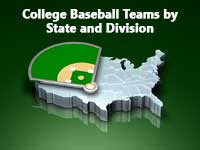 Do you know which state, New York or Texas, offers more college baseball teams? You’re wrong if you said Texas. Texas offers more D1 and Junior College programs but New York has more D2 baseball teams and over three times the number of D3 teams. Knowing which states offer which types of college baseball teams can improve your chances of making a college team. (This combined with the DIY College Rankings Baseball Spreadsheet forms the foundation for your college search.)
Do you know which state, New York or Texas, offers more college baseball teams? You’re wrong if you said Texas. Texas offers more D1 and Junior College programs but New York has more D2 baseball teams and over three times the number of D3 teams. Knowing which states offer which types of college baseball teams can improve your chances of making a college team. (This combined with the DIY College Rankings Baseball Spreadsheet forms the foundation for your college search.)
26 College Baseball Camps and Prospect Showcases
 This post has been updated for 2022. Specific college baseball camps/showcases are listed by date below. If at all possible, you want the coaches from the college you are interested in to see you play. This is a qualified statement since some colleges will recruit players strictly off video. These tend to be smaller colleges or schools without any recruiting budget. Of course, all coaches would prefer to see you play and baseball camps can be a very effective way to get in front of several college coaches in a very short period of time.
This post has been updated for 2022. Specific college baseball camps/showcases are listed by date below. If at all possible, you want the coaches from the college you are interested in to see you play. This is a qualified statement since some colleges will recruit players strictly off video. These tend to be smaller colleges or schools without any recruiting budget. Of course, all coaches would prefer to see you play and baseball camps can be a very effective way to get in front of several college coaches in a very short period of time.
How Many Colleges to Target to Play College Baseball
 50–that’s the number of colleges you should target if you’re interested in getting to play college baseball at the college level. Too many? Think I might be exaggerating a little? Or maybe I don’t have a clue as to what I’m talking about? Give me a moment and I’ll explain my madness.
50–that’s the number of colleges you should target if you’re interested in getting to play college baseball at the college level. Too many? Think I might be exaggerating a little? Or maybe I don’t have a clue as to what I’m talking about? Give me a moment and I’ll explain my madness.
What You Need to Know About Verbal Commitments
 If you’re looking to play college athletics, you can’t help but hear about verbal commitments. And if you’re pursuing an athletic scholarship, chances are that you’ll be making a verbal commitment yourself. Plenty of powerhouse schools expect athletes to verbally commit long before the National signing day. So the sooner you can make a verbal commitment, the better–right? The question is better for whom?
If you’re looking to play college athletics, you can’t help but hear about verbal commitments. And if you’re pursuing an athletic scholarship, chances are that you’ll be making a verbal commitment yourself. Plenty of powerhouse schools expect athletes to verbally commit long before the National signing day. So the sooner you can make a verbal commitment, the better–right? The question is better for whom?


